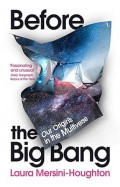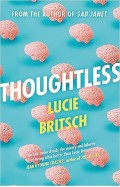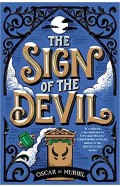Catching Breath The Making and Unmaking of Tuberculosis
By: Kathryn Lougheed
-
Rs 845.75
- Rs 995.00
- 15%
You save Rs 149.25.
Due to constant currency fluctuation, prices are subject to change with or without notice.
Tuberculosis is an ancient disease, but it's not a disease of history. With more than a million victims every year – more than any other disease, including malaria – and antibiotic resistance now found in every country worldwide, tuberculosis is once again proving itself to be one of the smartest killers humanity has ever faced. But it's hardly surprising considering how long it's had to hone its skills. Forty-thousand years ago, our ancestors set off from the cradle of civilisation on their journey towards populating the planet. Tuberculosis hitched a lift and came with us, and it's been there ever since; waiting, watching, and learning. In The Robber of Youth, Kathryn Lougheed, a former TB research scientist, tells the story of how tuberculosis and humanity have grown up together, with each being shaped by the other in more ways than you could imagine. This relationship between man and microbe has spanned many millennia and has left its mark on both species. We can see evidence of its constant shadow in our genes; in the bones of the ancient dead; in art, music and literature. Tuberculosis has shaped societies - and it continues to do so today.
The organism responsible for TB, Mycobacterium tuberculosis, has had plenty of time to adapt to its chosen habitat – human lungs – and has learnt through natural selection to be an almost perfect pathogen. Using our own immune cells as a Trojan Horse to aid its spread, it's come up with clever ways to avoid being killed by antibiotics. But patience has been its biggest lesson - the bacterium can enter into a latent state when times are tough, only to come back to life when a host's immune system can no longer put up a fight. Today, more than one million people die of the disease every year and around one-third of the world's population are believed to be infected. That's more than two billion people. Throw in the compounding problems of drug resistance, the HIV epidemic and poverty, and it's clear that tuberculosis remains one of the most serious problems in world medicine.
The Robber of Youth follows the history of TB through the ages, from its time as an infection of hunter-gatherers to the first human villages, which set it up with everything it needed to become the monstrous disease it is today, through to the perils of industrialisation and urbanisation. It goes on to look at the latest research in fighting the disease, with stories of modern scientific research, interviews doctors on the frontline treating the disease, and the personal experiences of those affected by TB.
| Book | |
| What's in the Box? | 1 x Catching Breath The Making and Unmaking of Tuberculosis |
Tuberculosis is an ancient disease, but it's not a disease of history. With more than a million victims every year – more than any other disease, including malaria – and antibiotic resistance now found in every country worldwide, tuberculosis is once again proving itself to be one of the smartest killers humanity has ever faced. But it's hardly surprising considering how long it's had to hone its skills. Forty-thousand years ago, our ancestors set off from the cradle of civilisation on their journey towards populating the planet. Tuberculosis hitched a lift and came with us, and it's been there ever since; waiting, watching, and learning. In The Robber of Youth, Kathryn Lougheed, a former TB research scientist, tells the story of how tuberculosis and humanity have grown up together, with each being shaped by the other in more ways than you could imagine. This relationship between man and microbe has spanned many millennia and has left its mark on both species. We can see evidence of its constant shadow in our genes; in the bones of the ancient dead; in art, music and literature. Tuberculosis has shaped societies - and it continues to do so today.
The organism responsible for TB, Mycobacterium tuberculosis, has had plenty of time to adapt to its chosen habitat – human lungs – and has learnt through natural selection to be an almost perfect pathogen. Using our own immune cells as a Trojan Horse to aid its spread, it's come up with clever ways to avoid being killed by antibiotics. But patience has been its biggest lesson - the bacterium can enter into a latent state when times are tough, only to come back to life when a host's immune system can no longer put up a fight. Today, more than one million people die of the disease every year and around one-third of the world's population are believed to be infected. That's more than two billion people. Throw in the compounding problems of drug resistance, the HIV epidemic and poverty, and it's clear that tuberculosis remains one of the most serious problems in world medicine.
The Robber of Youth follows the history of TB through the ages, from its time as an infection of hunter-gatherers to the first human villages, which set it up with everything it needed to become the monstrous disease it is today, through to the perils of industrialisation and urbanisation. It goes on to look at the latest research in fighting the disease, with stories of modern scientific research, interviews doctors on the frontline treating the disease, and the personal experiences of those affected by TB.
Catching Breath The Making and Unmaking of Tuberculosis
By: Kathryn Lougheed
Rs 845.75 Rs 995.00 Ex Tax :Rs 845.75
Zubin Mehta: A Musical Journey (An Authorized Biography)
By: VOID - Bakhtiar K. Dadabhoy
Rs 892.50 Rs 1,050.00 Ex Tax :Rs 892.50
If the Oceans Were Ink: An Unlikely Friendship and a Journey to the Heart of the Quran
By: Carla Power
Rs 5,665.50 Rs 6,295.00 Ex Tax :Rs 5,665.50
Chilled: How Refrigeration Changed the World and Might Do So Again
By: Tom Jackson
Rs 892.50 Rs 1,050.00 Ex Tax :Rs 892.50
Great Soul Mahatma Gandhi And His Struggle With India
By: Joseph Lelyveld
Rs 731.25 Rs 975.00 Ex Tax :Rs 731.25
Get Real: How To Tell It Like It Is In A World of Illusions
By: Eliane Glaser
Rs 531.25 Rs 625.00 Ex Tax :Rs 531.25
The Valmiki Syndrome Finding The Work Life Balance
By: Ashok K Banker
Rs 431.25 Rs 575.00 Ex Tax :Rs 431.25
Unstoppable From Underdog to Undefeated How I Became a Champion
By: Anthony Robles
Rs 597.50 Rs 1,195.00 Ex Tax :Rs 597.50
If the Oceans Were Ink: An Unlikely Friendship and a Journey to the Heart of the Quran
By: Carla Power
Rs 5,665.50 Rs 6,295.00 Ex Tax :Rs 5,665.50
Chilled: How Refrigeration Changed the World and Might Do So Again
By: Tom Jackson
Rs 892.50 Rs 1,050.00 Ex Tax :Rs 892.50
Atomic Habits: An Easy and Proven Way to Build Good Habits and Break Bad Ones
By: James Clear
Rs 3,820.75 Rs 4,495.00 Ex Tax :Rs 3,820.75
Cyberboss - The Rise of Algorithmic Management and the New Struggle for Control at Work
By: Craig Gent
Rs 5,395.50 Rs 5,995.00 Ex Tax :Rs 5,395.50
A Mirror to Power: Notes on a Fractured Decade
By: M.J. Akbar
Rs 2,035.75 Rs 2,395.00 Ex Tax :Rs 2,035.75
Tree of Imagination - A Wild and Wonderful 3-D Puzzle
By: Bob Staake
Rs 5,395.50 Rs 5,995.00 Ex Tax :Rs 5,395.50
Time and How to Spend It: The 7 Rules for Richer, Happier Days
By: James Wallman
Rs 1,270.75 Rs 1,495.00 Ex Tax :Rs 1,270.75
Bend & Build: Architecture with Bamboo
By: Chris van Uffelen
Rs 9,896.25 Rs 13,195.00 Ex Tax :Rs 9,896.25
Before the Big Bang - The Origin of Our Universe from the Multiverse
By: Laura Mersini-Houghton
Rs 2,515.50 Rs 2,795.00 Ex Tax :Rs 2,515.50
Tree of Life Artisan Art Notebook Flame Tree Journals
By: flame tree studio
Rs 2,695.50 Rs 2,995.00 Ex Tax :Rs 2,695.50
Thoughtless: A sharp, profound and hilarious new novel - for all the overthinkers
By: Lucie Britsch
Rs 3,225.75 Rs 3,795.00 Ex Tax :Rs 3,225.75
Art Maker Made Simple Colouring By Number Kit
By: Curious universe
Rs 1,345.50 Rs 1,495.00 Ex Tax :Rs 1,345.50
Your Unconscious Is Showing - Change and Control Your Life Using the 12 Steps of Consciousness
By: Dr Courtney Tracy
Rs 4,295.00 Ex Tax :Rs 4,295.00
One World Divisible - A Global History Since 1945
By: David Reynolds
Rs 2,245.50 Rs 2,495.00 Ex Tax :Rs 2,245.50
Zubin Mehta: A Musical Journey (An Authorized Biography)
By: VOID - Bakhtiar K. Dadabhoy
Rs 892.50 Rs 1,050.00 Ex Tax :Rs 892.50
Catching Breath The Making and Unmaking of Tuberculosis
By: Kathryn Lougheed
Rs 845.75 Rs 995.00 Ex Tax :Rs 845.75
If the Oceans Were Ink: An Unlikely Friendship and a Journey to the Heart of the Quran
By: Carla Power
Rs 5,665.50 Rs 6,295.00 Ex Tax :Rs 5,665.50
Chilled: How Refrigeration Changed the World and Might Do So Again
By: Tom Jackson
Rs 892.50 Rs 1,050.00 Ex Tax :Rs 892.50












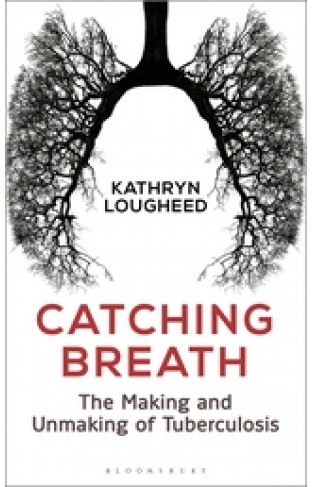
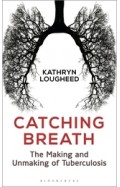
-120x187.jpg?q6)







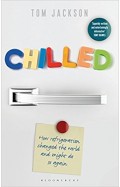
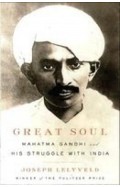













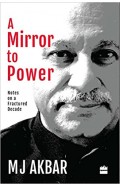

-120x187.jpg?q6)





